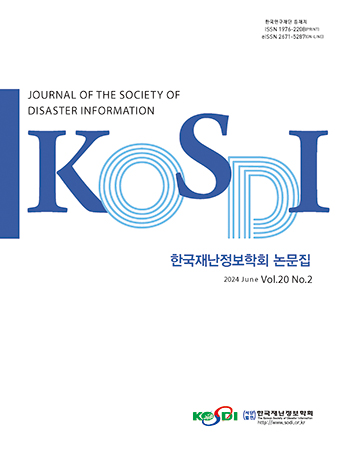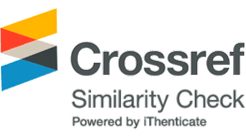Original Article
Abstract
References
Information
Purpose: Each local government has a variety of cultural spaces. However, users do not know exactly about cultural information or location. Therefore, information technology application methods are needed to effectively communicate the necessary information to local residents as well as to outsiders. In this paper, we studied the voluntary production of information for the sharing of local culture, and the methods for protecting the environment of the users themselves. Method: For this, information technology such as QR code, big data analysis, and interactive homepage based on SNS was used. Result: As a result, we derived a method of community creation by users, and the personal information protection from such activities. Conclusion: This research will contribute to the development of local culture by encouraging users to understand the local culture more and to participate in autonomous environmental improvement.
연구목적: 각 지자체들은 다양한 문화공간을 보유하고 있다. 하지만 이용자들은 문화 관련 정보나 위치 등을 정확히 알지 못한다. 따라서 필요한 정보들을 지역주민들은 물론 외지인들에게 효과적으로 전달하기 위한 정보기술 적용 방법이 필요하다. 본 논문에서는 지역문화 공유를 위한 정보의 자발적인 생산과 이용자 스스로의 환경보호를 위한 방법을 연구하였다. 연구방법: 이를 위하여 QR코드, 빅데이터 분석, SNS에 기반을 둔 상호작용 홈페이지 등의 정보기술을 활용하였다. 연구결과: 그 결과로 이용자들에 의한 자생적인 커뮤니티 형성 방법과 이런 활동에 따른 개인정보 보호 방안을 도출하였다. 결론: 이 연구로 이용자들이 지역문화에 대한 이해를 높이고, 자율적인 환경 개선 참여를 유도하여 지역문화 발전에 기여할 수 있을 것이다.
- Choi, R.-I. (2018). "Tourism strategy and cultural policy research through development of local tourism resources." Asia-pacific Journal of Multimedia Services Convergent with Art, Humanities, and Society, Vol. 8, No.5, pp. 43-51.
- Jin, B.-R., Choi, J.-Y., Lee, Y.-T. (2016). "An analysis of the structural relations among volunteer motivation, self-efficacy, commitment and satisfaction of volunteers for a regional tourism event." International Journal of Tourism Sciences, Vol. 40, No. 10, pp. 95-114.10.17086/JTS.2016.40.10.95.114
- Jin, B.-R., Lee, S.-H. (2018). "A grounded theory approach to tourism volunteer SNS work processes: A case of university student supporters and SNS tourism public relations." The Tourism Sciences Society of Korea, Vol. 42, No. 5, pp. 97-116.10.17086/JTS.2018.42.5.97.116
- Ko, J. (2015). "A study on obtaining feedback function of disaster information management using information & communication technology." Journal of the Korea Society of Disaster Information, Vol. 11, No. 1, pp. 73-88.10.15683/kosdi.2015.11.1.73
- Korea Tourism Information, http://www.visitkorea.or.kr (2020.1.10.)
- Min, W.-K., Park, B.-G. (2015). "A discussion on alternative tourism policy and management strategy for tourism promotion in the age of globalization : Policies with public interest and strategies with competitive advantages." Northesast Asia Tourism Research, Vol. 11, No. 2, pp. 1-20.
- National Information Society Agency, https://www.nia.or.kr (2020.1.7.)
- Naver QR Code, https://qr.naver.com/ (2020.1.10.)
- Suyeong District Office, http://www.suyeong.go.kr/index.suyeong (2020.1.9.)
- Wikipedia, https://ko.wikipedia.org/wiki/Special:Search?search=qrcode (2020.1.10.)
- Won, J.-Y. (2017). "Self-disclosure and cyberbullying on SNS." Korea Society Of Management Information Systems, Vol. 19, No. 1, pp. 1-23.10.14329/isr.2017.19.1.001
- Publisher :The Korean Society of Disaster Information
- Publisher(Ko) :한국재난정보학회
- Journal Title :Journal of the Society of Disaster Information
- Journal Title(Ko) :한국재난정보학회논문집
- Volume : 16
- No :2
- Pages :364-373
- DOI :https://doi.org/10.15683/kosdi.2020.06.30.364




 Journal of the Society of Disaster Information
Journal of the Society of Disaster Information







